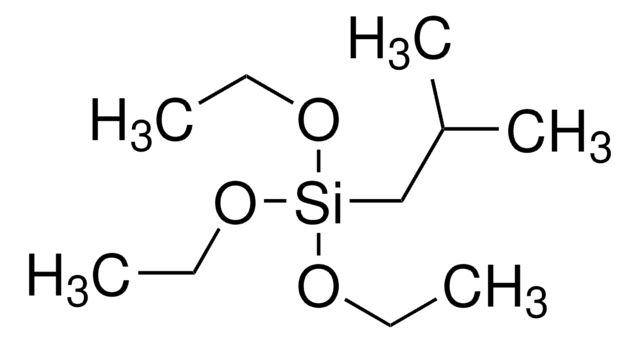716731
Dimethyl sulfoxide-d6
"Special HOH", ≥99.9 atom % D
동의어(들):
(Methyl sulfoxide)-d6, DMSO-d6, Hexadeuterodimethyl sulfoxide
로그인조직 및 계약 가격 보기
모든 사진(1)
About This Item
Linear Formula:
(CD3)2SO
CAS Number:
Molecular Weight:
84.17
Beilstein:
1237248
EC Number:
MDL number:
UNSPSC 코드:
12142201
PubChem Substance ID:
NACRES:
NA.21
추천 제품
vapor pressure
0.42 mmHg ( 20 °C)
Quality Level
동위원소 순도
≥99.9 atom % D
분석
≥99% (CP)
양식
liquid
autoignition temp.
573 °F
expl. lim.
42 %
기술
NMR: suitable
refractive index
n20/D 1.476 (lit.)
bp
189 °C (lit.)
mp
20.2 °C (lit.)
density
1.190 g/mL at 25 °C (lit.)
질량 이동
M+6
SMILES string
[2H]C([2H])([2H])S(=O)C([2H])([2H])[2H]
InChI
1S/C2H6OS/c1-4(2)3/h1-2H3/i1D3,2D3
InChI key
IAZDPXIOMUYVGZ-WFGJKAKNSA-N
유사한 제품을 찾으십니까? 방문 제품 비교 안내
일반 설명
Dimethyl sulfoxide-d6 (DMSO-d6) is a deuterated NMR solvent. It undergoes photodissociation to generate CD3 radical photoproducts, which have been analyzed by infrared diode laserabsorption spectroscopy. Dissociation dynamics of DMSO-d6 at 193nm was examined using photo fragment translational spectroscopy method.
애플리케이션
Dimethyl sulfoxide-d6 may be used as an NMR solvent for 1H and 13C NMR experiments.
추천 제품
Check out ChemisTwin®, our brand new online portal for identity confirmation and quantification of NMR spectra. Learn more or reach out to us for a free trial.
Storage Class Code
10 - Combustible liquids
WGK
WGK 1
Flash Point (°F)
190.4 °F
Flash Point (°C)
88 °C
Solution forms of an antitumor cyclic hexapeptide, RA-VII in dimethyl sulfoxide-d6 from nuclear magnetic resonance studies.
Itokawa H, et al.
Chemical & Pharmaceutical Bulletin, 40(4), 1050-1052 (1992)
Unraveling the dissociation of dimethyl sulfoxide following absorption at 193 nm.
Blank DA, et al.
J. Chem. Phys. , 106(2), 539-550 (1997)
Diode laser measurements of CD3 quantum yields and internal energy for the dissociation of dimethyl sulfoxide-d6.
Rudolph RN, et al.
J. Chem. Phys., 106(4), 1346-1352 (1997)
Priya P Netalkar et al.
European journal of medicinal chemistry, 79, 47-56 (2014-04-12)
Air and moisture stable coordination compounds of late first row transition metals, viz. Co(II), Ni(II), Cu(II) and Zn(II), with a newly designed ligand, 2-(2-benzo[d]thiazol-2-yl)hydrazono)propan-1-ol (LH), were prepared and successfully characterized using various spectro-analytical techniques. The molecular structures of the ligand
Barbara Parrino et al.
European journal of medicinal chemistry, 94, 367-377 (2015-03-18)
Three new ring systems, pyrido[2',3':3,4]pyrrolo[1,2-a]quinoxalines, pyrido[3',2':3,4]pyrrolo[1,2-a]quinoxalines and pyrido[2',3':5,6]pyrazino[2,1-a]isoindoles, were synthesized through an aza-substitution on the already active isoindolo-quinoxaline system and in particular in the position 7 or 4 of the isoindole moiety and in position 5 of the quinoxaline portion.
Global Trade Item Number
| SKU | GTIN |
|---|---|
| 716731-10X0.75ML | 4061837616365 |
| 716731-10ML | 4061837660382 |
| 716731-50ML | 4061837660399 |
자사의 과학자팀은 생명 과학, 재료 과학, 화학 합성, 크로마토그래피, 분석 및 기타 많은 영역을 포함한 모든 과학 분야에 경험이 있습니다..
고객지원팀으로 연락바랍니다.


